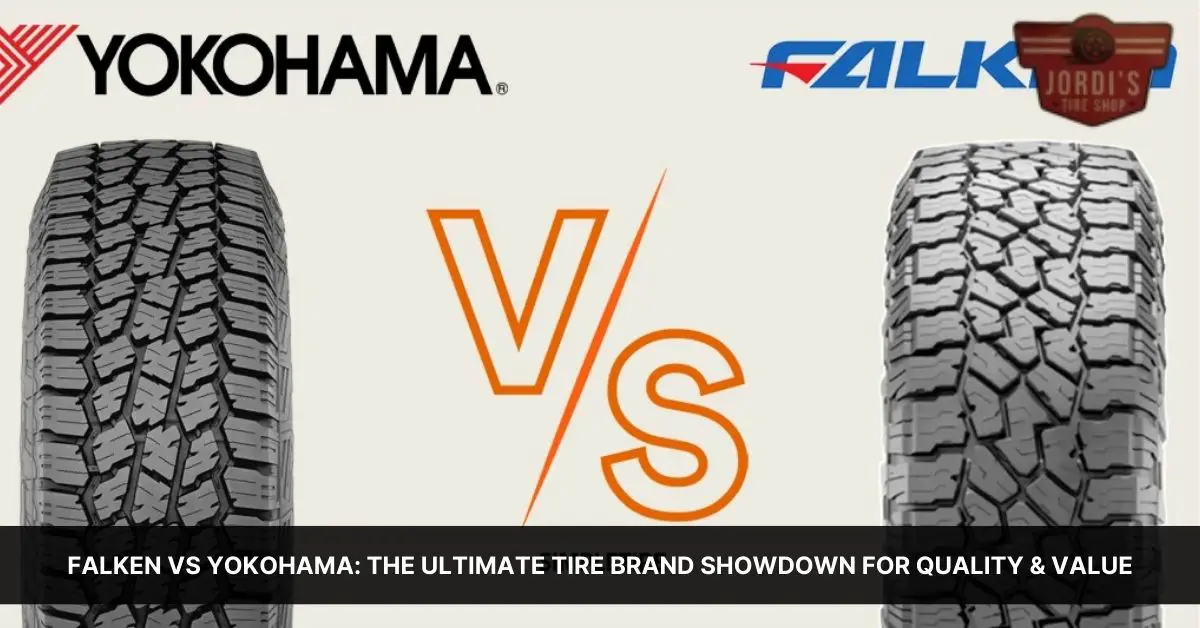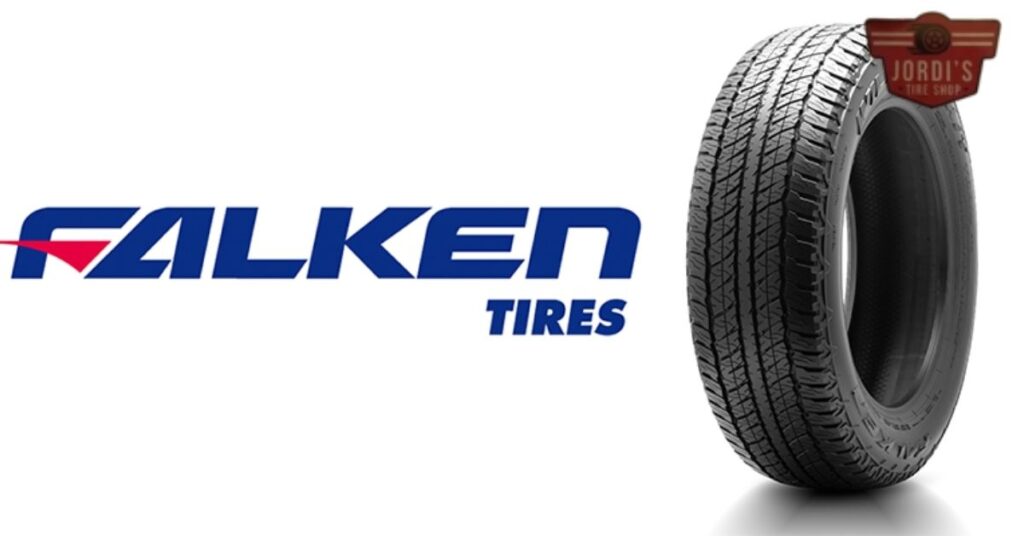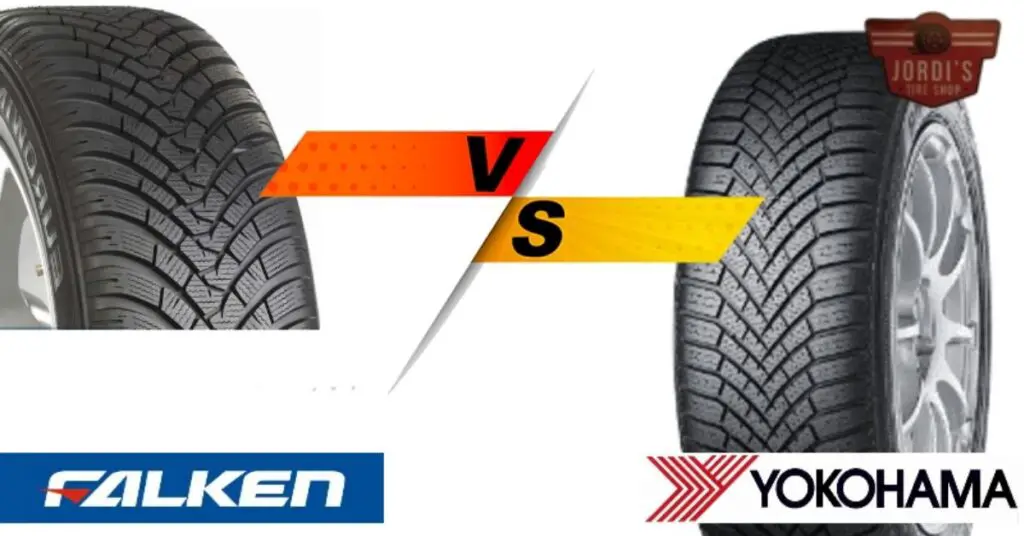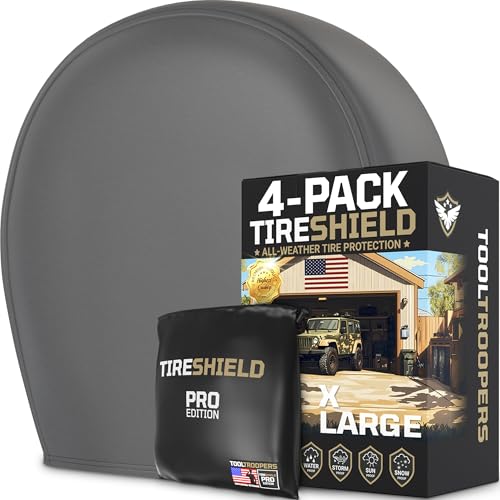Ever found yourself in the tire aisle, torn between Falken and Yokohama? You’re not alone. These two giants in the tire industry have been competing for the top spot for years, leaving many consumers in a quandary over which to choose.
Brief Overview of Falken and Yokohama
Falken, a subsidiary of Sumitomo Rubber Industries, climbed into prominence in the early 1980s. It’s a brand that initially catered exclusively to the high-performance tire market. In due course, it expanded its range, encompassing all types of tires from off-road to comfortable road cruiser varieties. For customer satisfaction, they’ve also incorporated cutting-edge Japanese technology into their products. This brand speaks volumes about quality, endurance, and durability.
Yokohama, on the other hand, claims its roots from over a century ago. Established in 1917, it has prospered as one of the leading tire manufacturers globally. Primarily driven by innovation, Yokohama concentrates on creating groundbreaking technologies. This includes their patented BluEarth Technology for environmentally-friendly tires. Their extensive portfolio covers tires suitable for many vehicle types, from compact cars to heavy-duty trucks. This brand signifies comprehensive selections, state-of-the-art innovation, and an impressive commitment to the environment.
Next, comparison points, such as the tire’s performance, price range, and tire life, will further elucidate the choice between Falken and Yokohama.
Deep Dive into Falken
In the area of tire manufacturing, Falken’s made an undeniable mark. Let’s unpack the secrets of this brand’s success, focusing on its market presence, product performance, and pricing strategies.
Falken’s Reputation in the Market
Falken, earning its place as a top-tier tire manufacturer, stands tall in the competitive market. The brand’s emphasized quality, durability, and advanced Japanese technology, factors that solidified its reputation. Customers laud Falken for its ongoing commitment to evolution, constantly updating its tire designs to cater to the demands of diverse vehicles. Renowned motoring publications, plus, often appreciate Falken for its superior performance in tests assessing criteria such as grip and stopping distance.
Analysis of Falken Tire Performance
Falken’s tires, hailed for high performance, stand out in several aspects. The brand focuses extensively on the grip, a critical safety factor, particularly during maneuvers and in difficult weather conditions. Falken doesn’t skimp on noise reduction, ensuring its tires strike the right balance between grip and comfort. Likewise, Falken’s commitment to longevity emerges clear—its tires demonstrate exceptional tread life, thereby maximizing the value for your investment.
Evaluation of Falken Pricing
Falken doesn’t just deliver performance—it assures affordability too. The brand realizes that tires are a important expenditure for vehicle owners, so it’s aimed at offering high-quality options at different price points. Assessing the tire market broadly, you’ll find that Falken’s products often fall within the mid-range pricing tier. This means it’s possible to avail superior technology, enhanced performance capabilities, and prolonged tire life without stretching your budget to its limits with Falken.
Broad Look at Yokohama
Yokohama emerges as a global contender in the tire industry, known for its innovative approach and environmentally conscious designs. This comprehensive look into Yokohama considers the brand’s market standing, tire performance, and pricing strategy.
Yokohama’s Market Standing
Established earlier than Falken, Yokohama boasts a solid presence in the market. Its solid reputation, built over a century in business, allows the company to maintain a constant inflow of customers. The brand’s innovative technologies, like the patented BluEarth Technology, increase its appeal among environmentally concerned consumers, further stabilizing its market position.
Analysis of Yokohama Tire Performance
About tire performance, Yokohama showcases a commitment to quality through its diverse selection of tires. Its products excel in various performance tests, showing advanced grip capabilities even in varying road conditions. Also, Yokohama’s environmental commitment extends to its tire performance, with its BluEarth series tires offering increased fuel efficiency, reducing CO2 emissions. So, the company’s high standards for tire performance cater to a broad range of consumer needs.
Evaluation of Yokohama Pricing
The pricing strategy of Yokohama reflects its drive for superior quality. With options ranging from affordable to high-end, Yokohama’s pricing strategy accommodates varying consumer budgets. While some might regard Yokohama’s higher-priced offerings as prohibitive, the positive reviews about tire performance indicate that these tires provide commendable value for the financial investment.
It’s evident that Yokohama’s commitment to quality, innovative technology, and environmental responsibility make it a worthy contender in the tire industry. Whether these factors satisfy your exact tire needs, when compared to the durability-focused approach of Falken, is a decision that eventually lies with you.
Falken vs Yokohama: Direct Comparison
This section will engage you in a direct comparison of Falken and Yokohama, considering their performance, pricing, longevity, and durability.
Performance Comparison
When considering performance, both Falken and Yokohama feature impressive profiles. Commendations abound for Falken’s high-performance tires, amplified by their advanced grip, noise reduction features, and reviews from motoring publications. On Yokohama’s flank, it’s not just about performance – it’s about performance combined with innovation. This brand has made a important impact by achieving excellent ratings on grip capabilities and fuel efficiency. Backed by Yokohama’s patented BluEarth Technology, the blend of innovation and performance is clearly evident. Hence, if breaking new ground is your aim, Yokohama presents an appealing case. If you are after traditional high performance, Falken has the hindsight and the foresight.
Pricing Comparison
Reflecting on the pricing strategies of Falken and Yokohama, your budget and value expectations play critical roles. Falken positions itself in the mid-range price bracket, a strategy aimed at offering you superior quality tires at an affordable cost. Yokohama, on the other hand, offers a range that accommodates various budgets. They present value-packed options that stretch from the budget-friendly to the high-end, with each tire, regardless of cost, promising to earn its keep.
Longevity and Durability Comparison
Putting the spotlight on the longevity and durability of Falken and Yokohama tires, your mind might juggle questions around value for investment. With Falken tires, be prepared to partake in a lifespan encompassing impressive robustness and long-term performance. The brand’s focus on durability is as sharp as a laser, ensuring your tires stand the test of time. Yokohama, but, plays a slightly different ball game, using its innovative practices to produce tires that are not just durable, but also environmentally friendly. Hence, your choice might boil down to what you highly esteem: traditional durability of Falken or the honed balance of durability and environmental consciousness of Yokohama.
Consumer Reviews and Feedback
Listening to what consumers have to say about a product plays a critical role in understanding its strengths and weaknesses. This section delves into customer feedback and reviews for both Falken and Yokohama tires.
Feedback for Falken
Experiences of customers with Falken tires offer crucial insights. They often appreciate the performance and remarkable gripping power Falken tires deliver, especially on wet surfaces. In reviews, customers frequently mention the tire’s impact absorption capacity, emphasizing the smooth and comfortable ride it provides.
Also, Falken tires receive positive feedback for their longevity. Customers often mention that even after substantial use, tread wear is minimal, illustrating Falken’s focus on durability. Even though this durability, Falken tires are priced within a mid-range budget, leading many customers to view them as a cost-effective and solid investment.
But, it’s not uncommon for customers to report increased noise levels, especially at high speeds, which can affect the overall driving experience.
Feedback for Yokohama
Turning our attention to Yokohama, customer reviews often shine a spotlight on the tire’s innovative design. Consumers find Yokohama’s environmentally-friendly BluEarth Technology not just appealing but also practical, as it enhances fuel efficiency.
Yokohama tires receive substantial praise for their high performance. Specifically, customers point out the tire’s excellent grip, which gives them confidence in various driving conditions. They also highlight the effectiveness of Yokohama tires in reducing stopping distance, increasing overall passenger safety.
Like Falken, Yokohama also garners positive feedback for its durability. The tires’ ability to balance durability and performance, in particular, earns them high marks.
But, some customers feel that Yokohama, in contrast to Falken, tends to be on the expensive side. While they acknowledge that higher-end Yokohama tires offer commendable value, these monetary considerations may be a factor in their purchase decisions.
Conclusion
Choosing between Falken and Yokohama isn’t an easy task. Both brands have carved out their niches and have their unique strengths. Falken, known for its advanced technology and durability, has earned its place in the high-performance tire market. Its mid-range pricing strategy also makes it a popular choice among budget-conscious consumers.
On the other hand, Yokohama, with its innovative BluEarth Technology and a century-old reputation, has won over eco-conscious drivers. While it might be a bit pricier, the brand’s performance, fuel efficiency, and varied range justify the cost.
Customer reviews further reinforce these strengths, with Falken praised for its grip and durability and Yokohama noted for its fuel efficiency and performance. Eventually, the choice between Falken and Yokohama will depend on your exact needs, budget, and driving habits. So, weigh your options carefully and make a choice that best suits your requirements.
Q1: What is the main difference between Yokohama and Falken tire brands?
Falken primarily focuses on high-performance, durable tires using advanced Japanese technology. On the other hand, Yokohama is known for its innovative approach including its patented BluEarth Technology for environmentally-friendly tires.
Q2: How do the pricing strategies of Falken and Yokohama differ?
Falken generally offers high-quality options at mid-range prices, making it an affordable choice for vehicle owners. Meanwhile, Yokohama’s pricing strategy is more diverse, catering to a variety of budgets from modest to high-end.
Q3: How do these brands perform in terms of tire longevity and durability?
Both brands are recognized for their tire longevity and durability. Falken is specifically noted for its robust, long-lasting tires while Yokohama balances durability with its commitment to environmental consciousness.
Q4: What are the common consumer reviews for Falken tires?
Common reviews for Falken praise the tire’s performance, grip on wet surfaces, and durability, noting its minimal tread wear over time. However, some users have reported increased noise levels at high speeds.
Q5: What is the general consumer sentiment for Yokohama tires?
Yokohama customers usually highlight the practical benefits of BluEarth Technology, which enhances fuel efficiency, along with excellent grip and reduced stopping distances. While recognized for durability and performance, some users find them to be pricier.
Related Posts:
- Battle of the Falkens: Rubitrek AT vs. Wildpeak AT3W – Which is the Best for Your Ride?
- Falken vs Yokohama: The Ultimate Tire Brand Showdown for Quality & Value
- Falken Wildpeak AT3W vs Goodyear Duratrac: All-Terrain Tires Face-Off
- Decoding the Best Tire Choice: Nitto Nomad Grappler vs. Falken Wildpeak AT Trail Review



























